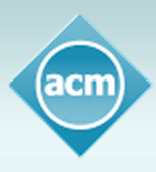| Occupy ACM - No More Paywalls |
| Written by Mike James | |||
| Friday, 04 January 2013 | |||
|
The scandal that is the archaic practice of making money from research paid for by the public has raised its head once again. Perhaps now it is time for members of academic organizations such as the ACM to take the democratic lead and force open access policies. The Windows on Theory blog has a discussion of the situation as it applies to the ACM, but the same arguments could be lined up against many academic professional organizations. In the old days, the days of paper print, there was some small justification for journals charging libraries and individuals for access to scientific papers. In this day of the Internet and low-cost publishing, it makes no sense for the academic publisher to charge a silly price for access to a PDF.
You can make the argument that such refereed publishing involves additional work, but this ignores that fact that the editorial board and the reviewers generally work for the glory rather than money. It is very difficult to see why this situation should persist and yet it does. As the Windows on Theory blog points out, the cost of actually publishing a paper is less than 1% of what it costs to produce it: There has been much debate about who should spend this 1% of costs, and whether spending it entitles organizations such as Elsevier or ACM to collect royalties from readers of the paper. In this debate, ACM’s positions are mostly not supportive of open access (e.g., see here and here). Indeed in some sense ACM’s policies are more restrictive than Elsevier’s, who allows free access to mathematics papers after 4 years from publication. ACM also opposed the Federal Research Public Access Act (FRPAA), which would have mandated open access to federally-funded research papers after 6 months of their publications. The ACM also initially refused to oppose (and even implicitly supported) the Research Works Act (RWA) which would have prohibited open-access mandate for federally funded research. It is suggested that the ACM in particular needs to think again, but members probably shouldn't take the drastic step of leaving the ACM in protest. Instead what needs to happen is that the democratic process should take it course and scientists who naturally want a wide audience for their work should insist on open access. Of course you may ask why principled scientists submit their work to journals run by organizations that profit from their work? The answer is that many of the paywalled journals have a history, a track record of excellence, and as a result publication in such a journal is worth more than being listed in arXiv. If you want to do something about the situation then the suggestion is that you should run for office and change things from the inside - and this applies not only to the ACM.
To be informed about new articles on I Programmer, install the I Programmer Toolbar, subscribe to the RSS feed, follow us on, Twitter, Facebook, Google+ or Linkedin, or sign up for our weekly newsletter.
Comments
or email your comment to: comments@i-programmer.info
|
|||
| Last Updated ( Friday, 04 January 2013 ) |


